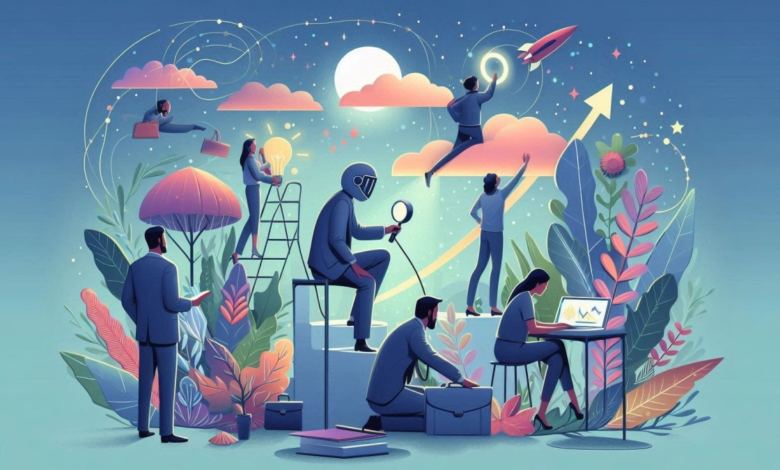Specialized: Understanding the Power of Focus in a Broad World

Discover the true meaning of being specialized, why specialization matters in life, work, and industries, and how a specialized approach shapes success in the modern world.
Introduction: What Does It Mean to Be Specialized?
The word specialized carries a unique weight in almost every context, whether we’re talking about careers, education, health, or even hobbies. To be specialized means having a focused skill set, a deep level of knowledge, or a targeted approach that sets someone or something apart from the broader, generalist field. It’s not just about being different—it’s about being refined and highly valuable in a particular niche.
Imagine walking into a marketplace. You’ll find general stores that sell a bit of everything, and you’ll also stumble upon small shops that only sell handcrafted jewelry, rare spices, or vintage books. These small shops are specialized. They don’t aim to please everyone; instead, they focus on a specific need or desire, and because of that, they attract the right customers. The same principle applies to people, industries, and even technologies that have honed their path in a specialized way.
Being specialized is not about limitations; it’s about depth. A specialized professional is trusted because they’ve invested the time, energy, and dedication required to master a field. In a world flooded with information and options, specialization provides clarity and reliability.
The Meaning of Specialized in Everyday Life
When we talk about being specialized, it’s not always about academics or professions. Specialized living happens all around us. Think about the way someone develops a unique cooking style after years of experimenting with flavors. Or how a gardener becomes specialized in growing rare orchids instead of managing a broad variety of plants.
Specialization gives life a sense of identity. For example, if you’re specialized in baking sourdough bread, people will think of you when they want the best loaf. That recognition is power. It creates trust and builds a reputation. Being specialized can make even ordinary activities extraordinary because it shows dedication and refined skill.
At the same time, being specialized teaches patience. You can’t become specialized overnight. It requires countless hours of practice, small failures, and consistent improvement. That process transforms expertise into something more meaningful than just knowledge—it becomes second nature.
Specialized Skills and Why They Matter
Specialized skills are what make professionals stand out. These are not just the common abilities that everyone lists on a resume but rather advanced talents that are rare and highly valued. For instance, while many people know basic graphic design, being specialized in medical illustration is a completely different level. That level of skill opens doors to specific industries where general knowledge wouldn’t be enough.
The beauty of specialized skills lies in their uniqueness. They make you irreplaceable in certain situations. A company can hire many people who know general marketing, but if they need someone specialized in data-driven social media advertising for healthcare brands, only a few candidates will truly fit the bill. That’s what specialization does—it turns broad opportunities into specific roles where expertise shines.
Specialized skills are also essential for personal growth. They push individuals to go beyond surface-level learning and develop deep insights. This depth is what creates mastery, and mastery is always respected. In a competitive market, being specialized is the difference between being average and being indispensable.
Specialized Industries and Their Impact
Entire industries thrive because they are specialized. Look at the medical field. It’s not just about doctors and nurses. Within it, there are cardiologists, neurologists, pediatricians, and countless other specialized professionals. Each one focuses on a very specific aspect of human health, and that specialization ensures patients get the best possible care.
The tech world is another great example. While some developers work broadly in software, others are specialized in artificial intelligence, cybersecurity, or blockchain development. These specialized areas move industries forward in ways that general skills cannot. They allow for innovation, precision, and groundbreaking results.
What’s fascinating is that specialized industries create their own ecosystems. For example, the luxury fashion industry doesn’t just revolve around clothes—it involves specialized designers, specialized fabric makers, specialized marketers, and even specialized supply chain managers. Together, they form a highly focused network where every role matters.
The Benefits of Being Specialized
Being specialized comes with a wide range of benefits, and they are not limited to career success.
First, specialization builds confidence. When you’re specialized in something, you know you can handle challenges in that area. That confidence not only boosts your performance but also earns you respect from others.
Second, being specialized increases demand. People seek out specialists when they need results. A generalist might be useful in many situations, but a specialized expert is often considered irreplaceable in critical ones. Whether it’s a lawyer specialized in intellectual property or a chef specialized in plant-based cuisine, clients and audiences naturally gravitate toward those who have that extra edge.
Finally, specialization provides clarity. Instead of spreading yourself thin across multiple areas, being specialized gives you a focused direction. It’s like sailing with a strong wind behind you—you know where you’re headed, and you move with purpose.
Challenges of Being Specialized
Of course, being specialized isn’t always easy. One of the biggest challenges is that specialization can sometimes feel limiting. If you’ve spent years becoming specialized in one field, pivoting to another can be difficult. The narrow focus that gives you strength in one area might hold you back in others.
Another challenge is staying relevant. Industries evolve quickly, and being specialized requires constant learning and adaptation. A specialized skill that was valuable five years ago might not hold the same weight today. That’s why experts must keep refining their specialized knowledge to stay ahead of trends.
Despite these challenges, the rewards of being specialized outweigh the risks. By embracing lifelong learning and staying open to new developments, specialists can maintain their edge while also finding creative ways to expand their expertise.
Specialized Knowledge vs. General Knowledge
There has always been a debate between being a generalist and being specialized. General knowledge allows flexibility and adaptability, but specialized knowledge brings depth and authority. Both have value, but in most cases, specialization is what creates distinction.
For example, in business, general knowledge helps leaders understand a broad picture. But when it comes to solving technical issues, specialized experts step in to provide precision. The same applies in education: general studies lay the foundation, but specialized studies give students a direction to pursue mastery.
In today’s world, a balance is often ideal. A person might have general knowledge across several areas but also hold specialized expertise in one field. This combination is powerful because it allows adaptability while still maintaining a strong identity in a chosen niche.
Specialized Tools and Technology

Technology has played a huge role in shaping how we understand being specialized. Specialized tools are designed for very specific tasks. Unlike general tools, they are built with precision to handle unique needs. Think of a regular kitchen knife versus a specialized sushi knife. Both cut, but one is tailored for exact results.
In professional fields, specialized software is transforming industries. For example, architects use specialized 3D modeling tools that are completely different from general design programs. In healthcare, specialized diagnostic machines allow doctors to detect conditions with accuracy that would be impossible with general equipment.
Specialized technology not only improves efficiency but also ensures quality. When tools are designed for specific purposes, they deliver better outcomes. That’s why industries invest heavily in specialized equipment to stay competitive and deliver excellence.
Table: Specialized vs. Generalized
| Aspect | Specialized | Generalized |
|---|---|---|
| Focus | Deep and narrow | Broad and wide |
| Knowledge Depth | High expertise in one area | Moderate knowledge in many areas |
| Career Advantage | High demand in niche roles | Flexibility across roles |
| Tools & Technology | Precision-driven and targeted | Multipurpose and versatile |
| Learning Curve | Steeper but rewarding | Smoother but limited depth |
Quotes on Being Specialized
“Specialization is not about doing less—it’s about doing one thing with unmatched excellence.”
“The future belongs to those who specialize in creating impact, not in knowing everything superficially.”
“Generalists know the way around, but specialists know the way forward.”
FAQs on Specialized
Q: What does specialized mean in simple terms?
A: Specialized means having a focused skill, knowledge, or approach in a specific area rather than covering everything broadly.
Q: Is it better to be specialized or a generalist?
A: Both have value. Being specialized offers depth and authority, while being a generalist provides flexibility. Ideally, a balance of both works best.
Q: How do I become specialized in something?
A: It takes consistent practice, focused learning, and dedication to a particular field. Over time, your skills deepen, and you become recognized as an expert.
Q: Why are specialized skills important?
A: Specialized skills are important because they set you apart, make you highly valuable in specific roles, and create opportunities that general skills can’t.
Q: Can specialization limit career growth?
A: Sometimes, but it depends on the field. As long as you keep updating your specialized knowledge, it will continue to be valuable.
Conclusion: The Value of Being Specialized
In a world filled with information, options, and competition, being specialized is what creates clarity, recognition, and authority. Whether it’s in skills, industries, or even personal hobbies, specialization represents dedication and depth. While it may present challenges, the advantages of being specialized far outweigh the limitations. It’s not about doing everything—it’s about doing something so well that it becomes your signature.





